A confusing topic to unravel is hemp oil vs CBD oil and whether these products differ.
It’s easy to get mixed up here.
Hemp oil and CBD oil are different. This is despite both being extracts from cannabis sativa.
Both have also seen considerable increases in adoption and use in countries like Australia. That’s because extracts from cannabis have potent health benefits.
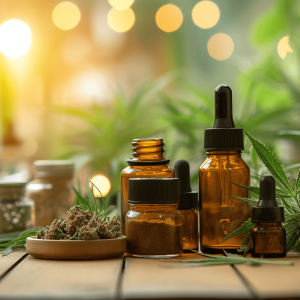
How do CBD oil and hemp oil differ? There are a few distinctions:
- CBD oil contains cannabinoids, which hemp oil won’t.
- Each has differing uses, benefits and types.
- Hemp oil is made differently from CBD oil via distinct extraction processes.
- The legality and restrictions around hemp and CBD oil also differ.
Understanding these distinguishing characteristics is vital.
Not doing so could mean you buy the wrong thing.
You might end up wasting your money, effort or time.
But worse, you could land yourself in legal trouble if you purchase certain types of CBD products in places like Australia. There are restrictions around what you can buy and where.
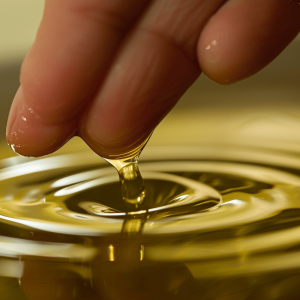
There will also be a best option for you depending on your needs. Hemp oil and CBD oil are better than each other, depending on what you need them for. Each has its advantages and drawbacks.
Let’s reveal how hemp oil and CBD oil differ. We’ll share the distinctions between these two natural hemp extracts. Learn about whether hemp oil or CBD oil is better and their differing uses and benefits.
Contents
Hemp Oil vs CBD Oil: How They Differ
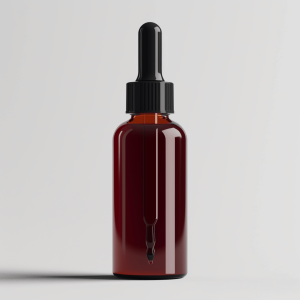
CBD oil and hemp oil differ in many essential areas.
These differences range from how each is made to what they’re used for.
Let’s run through the core differences between hemp oil vs CBD oil.
Cannabinoid Content
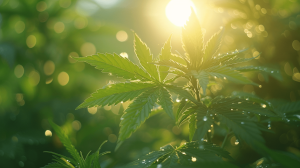
The primary difference between hemp oil and CBD oil is their cannabinoid content.
Cannabinoids are naturally produced compounds that occur in cannabis. They’re bioactive and therapeutic. In the body, they activate the endocannabinoid system. Through this pathway, they deliver many health benefits across the body and brain when consumed. For instance, cannabinoids like CBG and CBD are potent in reducing anxiety, pain and inflammation. Today, they’re consumed in products like CBD gummies or oils by people looking to mitigate chronic health conditions.
But you won’t find cannabinoids in hemp oil. Only CBD oil contains these valuable compounds.
That’s because hemp oil is created from hemp seeds, which don’t contain any cannabinoids.

Trace cannabinoids may still be present in hemp oil. But they will be less than 0.1% of the product’s total concentration.
In contrast, CBD oil is extracted from parts of the hemp plant with high cannabinoid concentrations. This includes the plant’s leaves, flowers (buds) and stalks. Each of these parts contains various cannabinoids depending on the strain of the plant. For example:
- CBD (Cannabidiol)
- CBN (Cannabinol)
- CBG (Cannabigerol)
- CBC (Cannabichromene)
- CBDA (Cannabidiolic acid)
Hemp plants don’t contain THC (the psychoactive cannabinoid) if they’re bred to produce pure CBD oil. THC is only found in medical cannabis plants that have differing strains.

Each of these cannabinoids has unique health benefits. Many are anxiolytic (can reduce anxiety), anti-inflammatory (inflammation lowering) or analgesic (pain-alleviating). These properties mean CBD oil is more expensive than hemp oil.
How They’re Used

Hemp oil vs CBD oil are used for very different purposes.
These distinct uses reflect the differences in each product’s nutrients, cannabinoids and other phytocompounds.
Hemp oil is mainly used for dietary purposes. It is usually not consumed by itself. Most people add hemp oil to other recipes or cooked dishes. For instance, it is great on cooked vegetables or salads to help improve healthy fat and vitamin content.
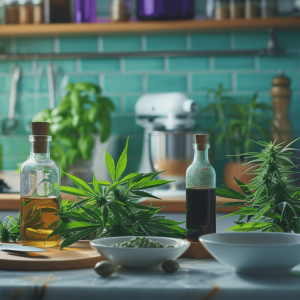
Like many other plant-based oils, hemp oil is often used for cooking and frying. It’s similar to other healthy vegetable oil products. You can use it as a healthier substitute for seed oils. It has a much better nutrient profile and vitamin content than canola, rice bran or rapeseed oil.
Compared to hemp oil, CBD oil’s uses are much more varied. Unlike hemp oil, it is also taken mainly by itself. It can still be added to food or drinks to help it absorb, but this is less common.
CBD Oil’s Therapeutic Uses

Because it activates the endocannabinoid system and has powerful therapeutic effects, people use CBD oil to help their health.
Some people use it daily to support energy, stress levels and wellbeing.
In others, CBD oil is taken to target particular conditions like anxiety, chronic pain or inflammation.
It is also used for:
- Reducing headache or migraine pains.
- Helping with athletic recovery and sports performance.
- Boosting sleep quality and depth.
- Preventing arthritis aches or joint stiffness.
- Assisting with skin conditions like eczema or psoriasis.
- Improving focus and combatting ADHD symptoms.
- Counteracting chronic stress and strengthening stress resilience.
CBD is also often used in other forms besides oils. For instance, CBD gummies, creams, sprays, and capsules are growing in popularity.
CBD oil’s incredible and broad benefits make it entirely different from hemp oil. Hemp oil can’t activate the endocannabinoid system. Its benefits and uses are limited to nutrition.
How They’re Made
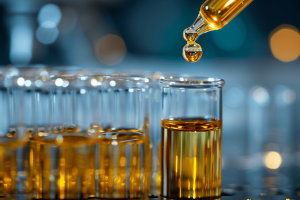
Another way that hemp oil and CBD oil differ is how each is made.
Hemp oil is mainly created using cold press extraction. In contrast, CBD oil is made via CO2 or solvent extraction. These techniques are very different.
Cold-pressing hemp seeds produce hemp oil. During this process, no external heat or solvents are used. Hemp seeds are crushed under very high pressure and cold temperatures. This squeezes the raw, nutritious hemp oil from each seed. Additional filtration removes seed shells to distil the mixture into pure hemp oil. This process doesn’t use any gases, solvents or heat. As such, it’s very distinct from how CBD oil is made.

Unlike hemp oil, CBD oil must be made under high heat or pressure using solvents or gases. This product can be extracted using ‘solvent extraction’ or ‘supercritical CO2 gas extraction’.
With solvent extraction, ethanol or other solvents dissolve cannabis resin. The mixture is heated to accelerate this process. Filtration then occurs to separate pure CBD oil from the cannabis plant matter. Solvent-extracted CBD oil often contains impurities, as it is hard to filter all solvent traces from the mixture.
Alternatively, ‘supercritical’ CO2 gas can be used as an extraction medium for CBD oil. This method employs high pressure and heat across multiple extraction chambers to distil CBD oil from resin. Gas-based extraction methods produce more pure CBD extracts. They eliminate the risk of contamination from solvents like ethanol. Under the heat and pressure used, they also eliminate bacteria contamination risks.
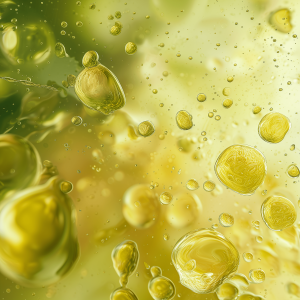
In either case, extracting CBD oil is much more complex and costly than hemp oil extraction. This is reflected in the prices of CBD oil versus hemp oil.
Flavour and Appearance
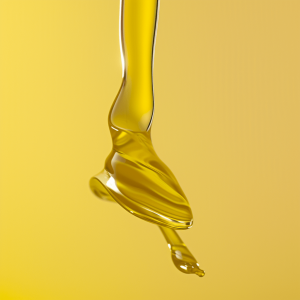
Hemp oil differs from CBD oil in flavour, colour and appearance.
Hemp oil is a nutty, light green, and clear (transparent) liquid. It resembles most other vegetable oils, like grape seed oil, but has a green-gold tinge. Some also describe its flavour as ‘earthy’ or ‘grassy’ in its palette.
CBD oil, on the other hand, can vary in taste and appearance. This variance is due to the number of differing formulations the product can come in. Isolate CBD oil tends to be very clear and pure in appearance. In contrast, full-spectrum CBD oil is darker and contains plant matter. That’s because it’s less processed to retain more raw hemp plant matter.

Because CBD oil contains cannabinoids and terpenes, it has a much more pungent, ‘musky’ taste. Because of this, producers often flavour their oil with vanilla or mint. Similarly, these products are frequently sweetened or salted to help with palatability. Hemp oil products are rarely flavoured.
Product Types
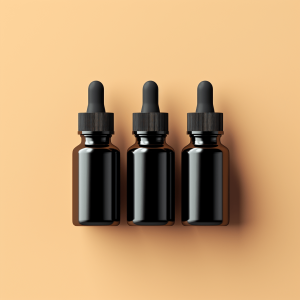
There tend to be far more product forms you can find CBD in versus hemp extract.
There are a couple of reasons for this.
CBD is a powder in pure form, which makes it hugely versatile. Manufacturers use this characteristic to infuse it into an extremely wide variety of product types today.
- CBD can be infused into foods, such as gummies, edibles, or lollies.
- It’s often even infused into creams or gels to be applied to the skin for arthritis conditions.
- You can even find it in sublingual, tablets, sprays or drinks.
In addition to product types, CBD oil has more formulations than hemp oil. You can find it in isolate, broad-spectrum and full-spectrum formulas. Each has specific advantages and is better for certain outcomes. For instance, full-spectrum CBD oil is rich in terpenes. This makes it better for overall holistic well-being as terpenes accentuate the effects of cannabinoids.
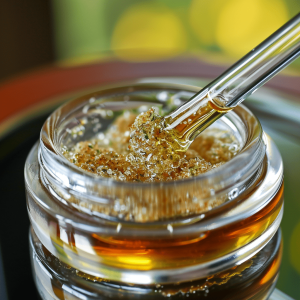
CBD oil is more versatile, flexible, and customisable than hemp oil. You can tailor certain products or CBD formulas to your health needs, tastes, and preferences.
This is distinct from hemp oil, which is only offered as an oil and has a single ‘formulation’.
Legality

There are significant differences between hemp oil and CBD oil concerning their legality.
Each has differing restrictions on where and how it can be bought in most countries. Overall, hemp oil is much easier to find and buy because it contains no cannabinoids, which are banned in most places.
Hemp oil can be bought in most supermarkets or health food stores in Australia. Typically, it’s found in the same shelf space as other plant-based oils like olive oil. You can also buy hemp oil online. There aren’t any restrictions on purchasing it, providing it’s been sourced from hemp seeds and contains no cannabinoids. Any hemp extract containing cannabinoids is a controlled product and won’t be found in these shop types.
CBD Oil is Controlled
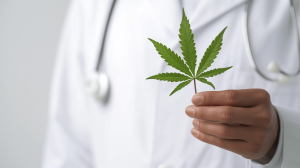
CBD oil can only be purchased in Australia under specific rules. Low-strength formulas (containing 150mg of CBD per day or less) can be bought over the counter in pharmacies or online. High-strength products with more CBD are more complicated to buy. They need a prescription in Australia and are treated as medicines. With a prescription, you can find them in cannabis dispensaries, pharmacies and certain online CBD shops.
Due to these restrictions, it’s much harder to find and buy CBD oil vs hemp oil. It should be noted our example here is exclusive to Australia. Other countries will have very different rules in many cases. For instance, in most countries, CBD oil is still illegal and can’t be purchased anywhere. This often also applies to hemp oil.

The association of these products with cannabis and the attached stigma this has caused means they aren’t viewed favourably in most locales. This applies even though neither is intoxicating. Over time, however, this attitude towards hemp products has evolved. More governments are becoming aware of the potent benefits of CBD oil and hemp oil. Regulations are getting updated progressively as each country realises their safe, health-enhancing effects for people far outweigh any risks they have.
Is Hemp Oil or CBD Oil Better?
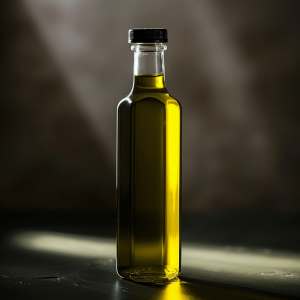
Let’s compare hemp oil and CBD oil to understand which is better.
To clarify, each has differing benefits and uses. They aren’t used for the same things.
As such, neither will necessarily be ‘better’ overall. Whether they are better depends on what you need these products for.

CBD oil has more significant health benefits and therapeutic effects than hemp oil. It’s more potent because of its actions on cannabinoid receptors in the endocannabinoid system. It can aid with many health conditions, including physical ailments such as arthritis, inflammation, high blood pressure, and pain. This makes CBD oil better for those who need help with particular health conditions or who want to lower overall inflammation and anxiety.
Hemp oil’s benefits are limited to its dietary, skin, and antioxidative value. It’s better for improving your nutrition and diet. Hemp oil is also anti-inflammatory, but less so than CBD products.
Let’s run through when hemp oil vs CBD oil is better based on their top benefits.
CBD Oil
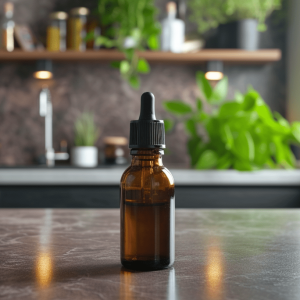
As mentioned, CBD oil is ‘therapeutic’. This means it can counteract or prevent certain health conditions. Some of these include anxiety, arthritis, chronic inflammation and high blood pressure. But it’s even good at reducing stress levels and protecting the brain.
Here are some of the top areas where CBD oil is better than hemp oil.
Stress Relief

If you want to reduce stress, taking CBD oil is better than hemp oil.
There’s a good reason for this.
Many cannabinoids are profoundly relaxing and calming.
CBD, for instance, can help soothe the nervous system. It effectively ‘blocks’ stress in the mind through the endocannabinoid system.
CBD acts on cannabinoid receptors in the hypothalamus, the brain region that controls stress. This helps to calm autonomic arousal in the limbic system. In other words, CBD oil suppresses the stress response.
After taking it, most people find themselves immensely calmer and feel blissful. Because of this effect, it’s commonly taken to help calm down before sleeping. It’s also common for those who start using CBD to find that it aids with other health areas as a result of reduced stress. For example, related improvements in anxiety levels, insomnia problems, or high blood pressure are often observed.
In contrast, hemp oil can’t reduce stress at all.
Anxiety Reduction

One of the best applications of CBD oil is in lowering anxiousness. Hemp oil doesn’t have this ability.
Research has shown that CBD is an ‘anxiolytic’ compound, meaning it lowers anxiety levels.
Many already use it to combat their symptoms of nervousness, racing thoughts or worry.
Its efficacy in treating anxiety has been demonstrated in many studies. For example, a 12-week clinical trial in Australia showed CBD oil reduced anxiety symptoms by 50% amongst a group of 31 adults suffering from anxiety disorders. Dosages in this study were very high. Each person was given 300-800mg of CBD per day. Their anxiousness symptoms sharply reduced, proving how beneficial CBD oil was for anxiety.
Many other trials are ongoing to understand the efficacy of differing CBD dosage strengths for anxiety mitigation. Not everyone needs high quantities of the cannabinoid to obtain excellent reductions in anxiousness. This is particularly true when full-spectrum CBD oil is used for anxiety. It contains terpenes (scent chemicals from hemp) that bolster the calming effects of CBD. Many terpenes, too, have their own soothing, anxiolytic properties.
Overall, CBD oil is far better than hemp oil for anxiety. Hemp oil won’t be able to provide any of these relaxing benefits.
Reduced Inflammation and Pain

Inflammation and pain are common reasons that people use CBD oil.
This makes sense as the product is strongly anti-inflammatory. It also has analgesic or pain-blocking properties.
Both of these characteristics are mainly due to endocannabinoids created by the body when triggered by CBD. Endocannabinoids like anandamide can alter signalling in the immune system. Most inflammation is caused by inflammatory agents like cytokines and prostaglandins, which the immune system produces. By reducing the production of these agents, cannabinoids like CBD help to minimise the damage that excessive inflammation causes. This is excellent for helping with chronic inflammatory conditions like rheumatoid arthritis, colitis or psoriasis.
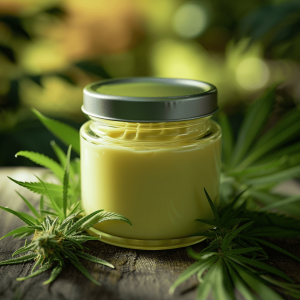
These conditions occur from chronic inflammation. The body’s immune system can become dysregulated and attack its healthy tissue. Overactive inflammatory reactions are the cause. Over time, this causes disease from the degradation of cells. It’s also a common source of chronic pain. For example, pain caused in the joints by rheumatoid arthritis is fundamentally the result of excess inflammation. Bringing immunity back into balance means this can be prevented. In turn, pain reduces over time.
Scientific studies have shown that CBD oil prevents inflammation, which is why it’s so effective for psoriasis. Beyond these anti-inflammatory properties, CBD is also pain-alleviating. In particular, CBD reduces the perception of pain (nociception) by altering the activity of pain nerve cells. Endocannabinoids minimise the quantity of pain signals these cells send to the brain’s pain receptors. In turn, pain sensations get dampened. Combined with reducing inflammation, lowering pain is a potent benefit for people with painful problems like arthritis.
Compared to hemp oil, CBD oil is much better at combatting inflammation and pain at the source.
Neuroprotective Benefits

A lesser-known benefit of CBD oil is its neuroprotective effects. Again, this is not an effect that hemp oil offers.
Cannabinoids like CBD lower neuroinflammation (‘brain inflammation’) through their anti-inflammatory powers. They’re also valuable for protecting neurons from overactivity. Each of these properties results from their endocannabinoid system activity. In addition, CBD can regulate brain neurotransmitters more directly. For instance, it alters the transmission of GABA and serotonin.
These effects are unique to CBD oil. Hemp oil can’t stimulate them.

Interestingly, CBD is so effective in protecting neurons that it’s even used as a treatment for epilepsy (called ‘Epidiolex’). This is a spray that contains high concentrations of CBD. It’s used to control seizure frequency and severity. A range of clinical trials have proven CBD’s neuroprotective, seizure-preventing advantages.
For example, a 2020 study examined the capacity of CBD to reduce seizures in children. One hundred fifty children participated in the trial. Those dosed with CBD had an 84% reduction in seizure frequency. 11% of the dosed group also saw a complete cessation of seizures. Researchers were astonished by these results. In addition, they found the compound to be highly safe. No adverse reactions were seen in any subjects. CBD doesn’t cause intoxication, which is why it can be used safely with children with epilepsy. Many adults also take advantage of its neuroprotective effects. For instance, it’s commonly taken to prevent headaches or migraines.
In considering hemp oil vs CBD oil, neuroprotection is a significant point of difference. Hemp oil can’t claim any ability to protect neurons or lower neuroinflammation.
Counteracting Psoriasis & Eczema

While hemp oil and CBD oil are great for the skin, the cannabinoids in CBD oil make it better for inflammatory skin conditions.
Inflammation in the skin cells causes several common skin problems, like psoriasis. The ability to block this inflammation and rebalance skin oil is vital as a treatment.
There are many topical skin medications used to achieve this. Cyclosporine, for example, is an immuno-suppressant that helps control psoriasis. But commonly, these ointments can worsen skin dryness or cause irritation. Using CBD oil or creams topically is a milder, calming, natural approach to soothing the skin. Using it helps to moisturise the skin’s layers while combatting inflammatory symptoms.
CBD oil can sometimes mitigate or resolve skin conditions like psoriasis and eczema. It helps normalise the skin’s reaction to irritants or allergens and avoid chronic inflammation. This prevents irritation, flakiness, and redness from psoriasis or eczema. How does this work?
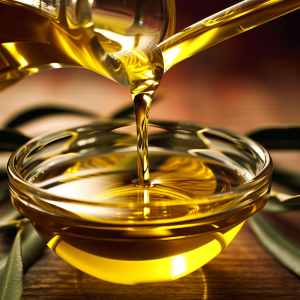
An abundance of CB2 cannabinoid receptors can be found within the skin. Once activated by CBD, these receptors help restore balance to the skin’s immune response via endocannabinoids. In addition, endocannabinoids help to balance hormone and sebum levels in the skin. This enhances skin complexion.
Although you can also use hemp oil topically for moisturisation, it doesn’t have the same degree of anti-inflammatory potential. Most people will use it in topical forms to help return healthy fats to the skin, hair or nails. However, hemp oil isn’t potent enough to mitigate inflammatory conditions like psoriasis. This is only possible using topical CBD products.
Hemp Oil
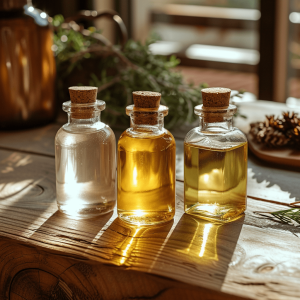
While it’s not therapeutic like CBD oil, hemp oil is better for several vital purposes.
It has advantages in its nutrition benefits and antioxidative effects.
Nutrition Benefits

Nutritionally, hemp oil is better than CBD oil.
It is purposefully extracted and designed as a dietary food. This is distinct from CBD oil, which isn’t used for food.
Because hemp oil is less processed, it has far more nutrients than CBD oil. Its nutrient density is far superior.
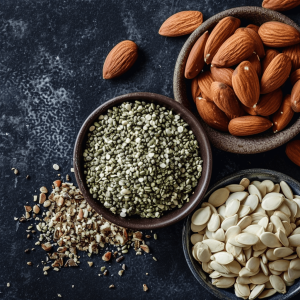
Nutrients in hemp oil include:
- Omega-3 and Omega-6 fatty acids.
- Alpha-linolenic and gamma-linolenic fatty acids.
- Minerals like magnesium and zinc.
- Vitamins such as folate and vitamin E.
- Lignans, phytosterols and other antioxidative phytonutrients.
These naturally occurring, plant-based nutrients are incredibly valuable for overall health. They’re excellent for:
- Cardiovascular function and supporting heart health.
- Gut health and microbiome diversity.
- Brain function and cognitive performance.
- Hormone production and regulation.
- Cellular or metabolic wellbeing.
In essence, hemp oil is excellent at strengthening almost all areas of physical health. It’s a nutritional powerhouse that will immensely increase the quality of your diet. You also only need a small amount per day to obtain these advantages. A spoon or two of hemp oil contains all the healthy fats, antioxidants, and vitamins you need to excel.
Hemp oil has a uniquely effective ratio of omega-3 to omega-6. These fatty acids work best for the heart at a 1:3 ratio, which is only found in hemp. Other plant products tend to have far more omega-6. Excess omega-6 isn’t advantageous, as it can raise cholesterol. Due to its better balance of healthy fats, hemp oil is superior to other oils like rice bran or coconut. Adding it to your daily salads, roasts, pasta or other dishes is excellent.
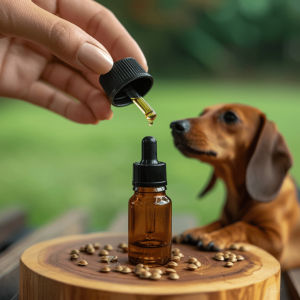
This is the primary area where hemp oil is better than CBD oil. Hemp has a much greater quantity, variety, and concentration of high-quality nutrients. CBD oil is outmatched here.
Skin and Hair Nourishment
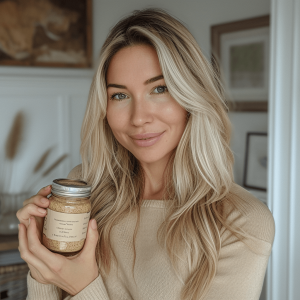
Both hemp and CBD oil help the skin immensely. However, while topical CBD is better for skin inflammation, hemp oil is best for skin moisture.
Hemp oil is a more effective moisturising agent because of its healthy fat content. It is rich in nourishing polyunsaturated (healthy) fats, which are fantastic at replenishing hair and skin. These polyunsaturated fatty acids support the natural sebaceous balance of the skin. Often, hemp oil is used directly on the skin as a natural moisturizer.
Polyunsaturated fatty acids like omega-3 and 6, GLA, and ALA are also antioxidative. This means they help to defend cells from damage, prevent aging, and support immune function. Antioxidants also assist in controlling inflammation. For example, phytosterols from hemp oil can help counteract symptoms of inflammation that underlie conditions like eczema.
Applying hemp oil vs. CBD oil is better for boosting skin or hair moisture. Hemp oil has a higher antioxidant content. Its rich, healthy fats are also more effective for topically rejuvenating hair, skin, and nails.
Antioxidative Effects
As it’s less processed than CBD oil, hemp oil has much better natural antioxidant concentrations.
Antioxidants are powerful for your well-being. They are chemicals that block ‘oxidation’. Oxidation is damage to cells. Free radical molecules cause this damage.
These are molecules from toxins or pollutants that can degrade your cell’s structure and even affect DNA.
Hemp oil contains high levels of naturally occurring antioxidants. For example:
- Phytosterols.
- Cannflavins and other flavonoids.
- Chlorophyll.
- Lignans.
- Beta-carotene.
- Beta-caryophyllene.
These chemicals strengthen metabolic function and defend the body. They help prevent many diseases. Consuming antioxidants has been linked to reduced risks of cancer, cardiovascular disease, inflammation, and even neurodegenerative diseases like Alzheimer’s.
Obtaining them from hemp oil is a smart way to aid longevity. CBD oil also contains many of the same antioxidants but in lower quantity and variety versus hemp oil.
How to Tell the Difference: Hemp Oil vs CBD Oil
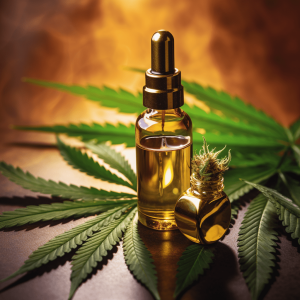
Because of their apparent similarities, it’s very common to mix hemp oil with CBD oil.
Mistaking these two products can be costly. If you purchase the wrong thing, you could also face legal risks.
Many CBD oil products are restricted from purchase without a prescription. Buying them accidentally thinking they’re hemp oil could land you in hot water.
So, how do you tell hemp oil apart from CBD oil?
This can be harder than it seems. Phrases like organic, GMO-free, pesticide-free, and terpene-rich are often used for both. Confusingly, many CBD retailers also label their products as hemp oil or hemp extract. Here are some ways you can distinguish the two.
Product Labelling & Ingredient List
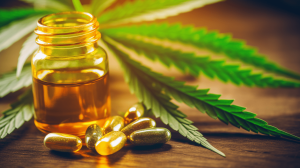
Providing they are labelled correctly, hemp and CBD oil should state very different things on their packaging.
Looking at a product’s labels and its ingredients is a fast way to determine its nature.
Hemp oil should not list cannabinoids like CBD on its ingredient list. The label may describe the product as ‘hemp seed oil’ or ‘whole plant extract hemp oil’, but it shouldn’t mention CBD.
In addition, the ingredients it contains should be exclusively hemp oil (from hemp seed).
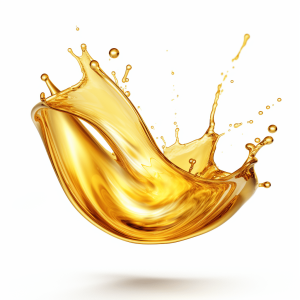
CBD oil, on the other hand, will always list its cannabinoid content. It should list the cannabinoids contained in the product, in addition to their concentrations. Most CBD oils contain MCT, olive, or coconut oil carrier oils. These carriers won’t ever be found in a pure hemp oil product. They should be listed clearly on the product’s package.
When you shop for hemp or CBD oil, look for distinct ingredients or labels on the packaging. They’ll give you an indication of what exactly you’re purchasing.
Another method is to obtain a third-party lab analysis on a prospective purchase. These are called certificates of analysis (‘COA’). They give accurate, detailed lists of cannabinoids in a product. Typically, they will list each alongside its concentrations in ng/ml. Hemp oil products won’t have an associated COA. They’re only used for CBD oil. Ask for one from a seller to confirm the product’s authenticity. A COA should be available on a CBD oil provider’s website or packaged with the product.
Price

A big giveaway is the price of a hemp oil vs. CBD oil product.
Compared to hemp oil, CBD oil is very expensive. A few factors are behind this.
Firstly, CBD oil is much harder to extract and produce than hemp oil. It involves far more costly machinery and energy inputs. Quality controls and filtration also add to this cost. Due to the cost involved, there tends to be a much smaller supply of CBD products. Hemp oil can be mass-produced cheaply, making it more abundant.
These factors manifest in the price of each type of hemp extract. In places like Australia, you can typically expect to pay more than $100 per 30mL dropper bottle of CBD oil. You could spend even more depending on the product’s strength, size, and quality. Higher-strength products are more heavily regulated and more expensive.
In comparison, hemp oil products usually cost less than $30 on average. They also typically don’t come in dropper bottles. You can find them mostly in glass pourer bottles like olive oil. No hemp oil product will cost more than $100. If it does, you’re probably mistaking it for a CBD product.
Checking the price tag can help you tell apart hemp oil vs CBD oil. Their stark differences in cost are an excellent way to distinguish the two.
Note, though, that some stores will sell very cheap CBD oil. It could be priced similarly to hemp oil. Avoid these products as they’re usually fake, diluted or low-quality. Price is a quality indicator when it comes to CBD products
Takeaways
The differences between hemp oil vs CBD oil are substantial.
Each product serves very distinct purposes, and they are dissimilar. We’ve covered whether hemp oil or CBD oil is better and how to tell them apart.
The most significant differences between hemp oil and CBD oil are:
- Cannabinoid content (hemp oil doesn’t contain any cannabinoids).
- Their usage methods (CBD oil is used for therapeutic purposes).
- Production methods (cold-pressing vs. gas or solvent extraction).
- How they look, taste and appear.
- Their product types, strengths and formulations.
- Legality and purchase restrictions of each.
Each of these distinguishing characteristics exists even though both hemp and CBD oils are produced from the hemp plant.
CBD oil is better than hemp oil for relieving stress, alleviating anxiety, mitigating pain and combatting inflammation across the body.
In contrast, hemp oil is better as a dietary addition to boost antioxidant intake and moisturise the skin.
Hemp oil is not a therapeutic product. It’s only produced from hemp seeds.
To differentiate between the two products, look at their product labels, prices, and whether a lab test result (certificate of analysis) is offered with each. Hemp oil also won’t contain carrier oils, which indicates the product is CBD oil.
FAQs
Hemp is a variety of cannabis sativa cultivated for industrial purposes. This variety contains very low levels of THC (tetrahydrocannabinol), so it is non-intoxicating. It’s often used to create textiles, hemp fibre or produce CBD oil. CBD is a cannabinoid from the hemp plant. It isn’t the same as hemp, however. CBD denotes the compound extracted from the plant. The two terms are not interchangeable.
Hemp oil does not contain cannabinoids like CBD, so its strength is not measured in the same way as CBD oil. A CBD oil’s strength is usually expressed in milligrams (mg), which refers to the total weight of pure CBD in an oil product. All hemp oils will contain 0mg of CBD. They’re made for dietary purposes only. This means they are far ‘weaker’ in comparison to CBD oil products.
Hemp oil doesn’t offer anxiety-reducing effects as it contains no cannabinoids like CBD. These cannabinoids are the reason CBD oil helps to calm anxiousness. This product has clinically proven anxiolytic (anxiety-reducing) effects. CBD products are effective for anxiety and related issues such as chronic stress or anxiety-related insomnia. They work by downregulating the stress response through cannabinoid receptors in the brain’s hypothalamus.
Hemp seed oil doesn’t contain CBD as it’s made from hemp seeds. These parts of the hemp plant contain no cannabinoids like CBD or THC.
No, hemp is not 100% CBD. Hemp is a plant that contains various compounds, including cannabinoids, terpenes, antioxidants, nutrients and other phytochemicals. While hemp can be high in CBD, it also frequently includes other cannabinoids such as CBG (cannabigerol), CBN (cannabinol), and trace amounts of THC (tetrahydrocannabinol). The exact composition can vary based on factors like the specific hemp strain and its cultivation methods.
References
- Australian Journal of General Practice. (2023). Medicinal cannabis. [online] Available at: https://www1.racgp.org.au/ajgp/2022/august/medicinal-cannabis.
- Ben-Zeev, B. (2020). Medical Cannabis for Intractable Epilepsy in Childhood: A Review. Rambam Maimonides Medical Journal, [online] 11(1). https://www.ncbi.nlm.nih.gov/pmc/articles/PMC7000162/
- Masataka, N. (2019). Anxiolytic Effects of Repeated Cannabidiol Treatment in Teenagers With Social Anxiety Disorders. Frontiers in Psychology, 10. https://www.frontiersin.org/journals/psychology/articles/10.3389/fpsyg.2019.02466/full
- Larsen, C. and Shahinas, J. (2020). Dosage, Efficacy and Safety of Cannabidiol Administration in Adults: A Systematic Review of Human Trials. Journal of Clinical Medicine Research, 12(3), pp.129–141. https://www.ncbi.nlm.nih.gov/pmc/articles/PMC7092763/
- Aychman, M.M., Goldman, D.L. and Kaplan, J.S. (2023). Cannabidiol’s neuroprotective properties and potential treatment of traumatic brain injuries. Frontiers in Neurology, 14. https://www.frontiersin.org/journals/neurology/articles/10.3389/fneur.2023.1087011/full
- Blessing, E.M., Steenkamp, M.M., Manzanares, J. and Marmar, C.R. (2015). Cannabidiol as a Potential Treatment for Anxiety Disorders. Neurotherapeutics, [online] 12(4), pp.825–836. https://link.springer.com/article/10.1007/s13311-015-0387-1
- Lookfong, N.A., Raup-Konsavage, W.M. and Silberman, Y. (2022). Potential Utility of Cannabidiol in Stress-Related Disorders. Cannabis and Cannabinoid Research. https://www.liebertpub.com/doi/10.1089/can.2022.0130
- Barrie, N. and Manolios, N. (2017). The endocannabinoid system in pain and inflammation: Its relevance to rheumatic disease. European Journal of Rheumatology, [online] 4(3), pp.210–218. https://www.ncbi.nlm.nih.gov/pmc/articles/PMC5685274/
- Barakji, J., Korang, S.K., Feinberg, J., Maagaard, M., Mathiesen, O., Gluud, C. and Jakobsen, J.C. (2023). Cannabinoids versus placebo for pain: A systematic review with meta-analysis and Trial Sequential Analysis. PLOS ONE, 18(1), p.e0267420. https://journals.plos.org/plosone/article?id=10.1371/journal.pone.0267420
- www.aad.org. (n.d.). Psoriasis treatment: Cyclosporine. [online] Available at: https://www.aad.org/public/diseases/psoriasis/treatment/medications/cyclosporine#:~:text=In%20clinical%20trials%2C%2080%25%20to.
- News (n.d.). Can CBD help people with psoriasis find relief? [online] news. Available at: https://health.ucdavis.edu/news/headlines/can-cbd-help-people-with-psoriasis-find-relief/2021/07
- Schott, C.K. and Huang, D.T. (2012). ω-3 fatty acids, γ-linolenic acid, and antioxidants: immunomodulators or inert dietary supplements? Critical Care, 16(6), p.325. https://www.ncbi.nlm.nih.gov/pmc/articles/PMC3672597/
- Vitality CBD. (n.d.). What are the different types of CBD? [online] Available at: https://vitalitycbd.co.uk/pages/types-of-cbd
- www.alternaleaf.com.au. (n.d.). Hemp Oil vs CBD Oil: What’s The Difference? [online] Available at: https://www.alternaleaf.com.au/post/hemp-oil-or-cbd-oil
- LloydsPharmacy. (n.d.). What’s the difference between hemp oil and CBD. [online] Available at: https://lloydspharmacy.com/blogs/vitamins-and-supplement-advice/difference-between-cbd-and-hemp-seed-oil.
- Grass & Co. (n.d.). What’s the difference between hemp seed oil and CBD Oil? [online] Available at: https://grassandco.com/blogs/cbd-guides/whats-the-difference-between-hemp-oil-and-cbd
